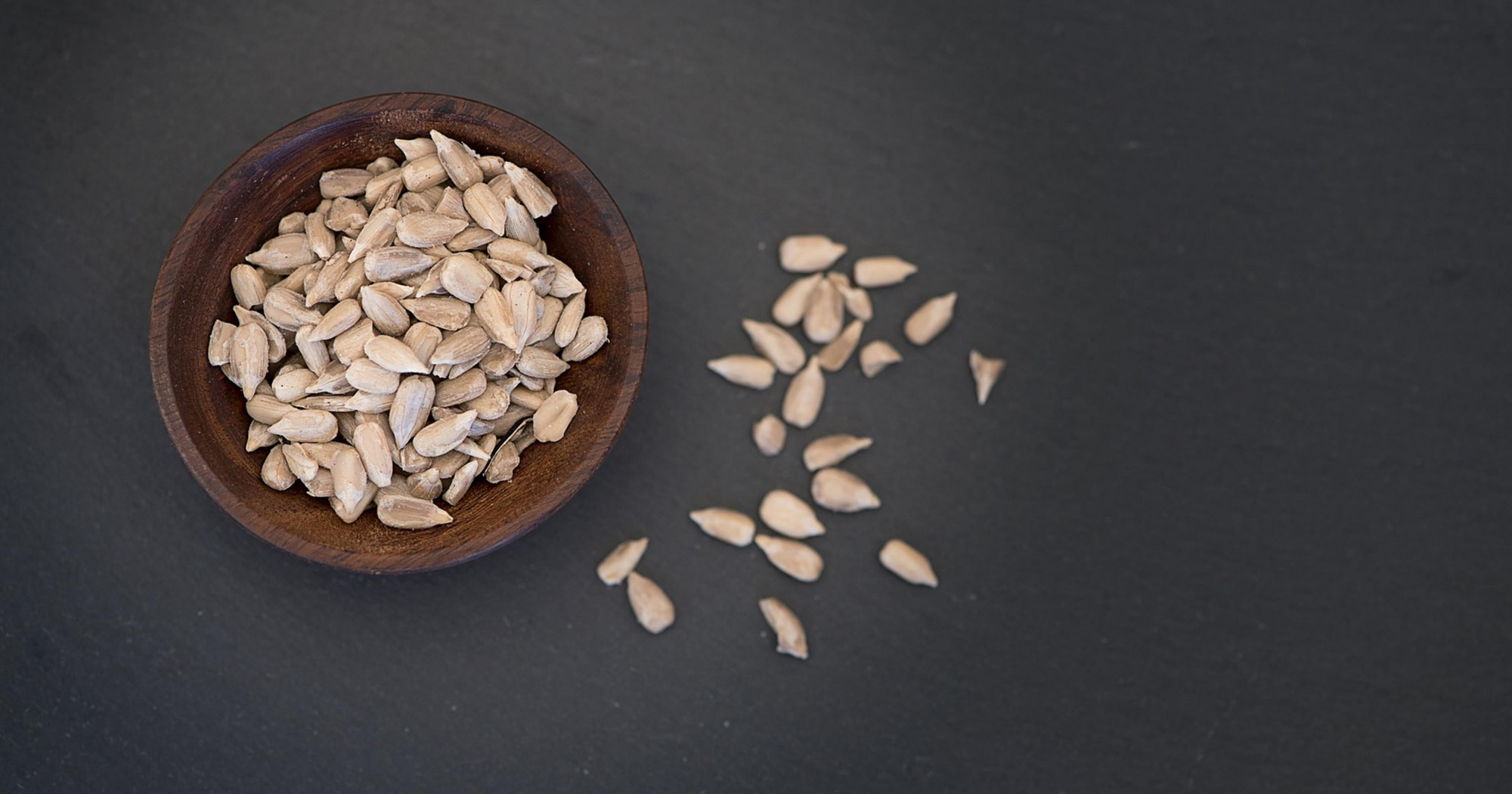Sunflower seeds

Sunflower seeds are an excellent source of vitamin E, an important antioxidant that helps neutralise free radicals – metabolism by-products that can damage our cells – and prevents cholesterol particles in the blood from oxidising. Cholesterol particles only become dangerous when they are oxidised and become ‘sticky’ because they can then attach themselves to the inner walls of arteries. So, vitamin E helps to protect blood vessels, maintain healthy blood pressure and also has anti-inflammatory properties. On top of this, a diet rich in vitamin E contributes to healthy skin and protects it from damage.
Sunflower seeds are a good source of folic acid (vitamin B9) and magnesium – important for healthy bones and nerve and muscle function and a plentiful supply can also help reduce asthma symptoms, migraine and high blood pressure. And let’s not forget protein! Just once ounce (two tablespoons) of sunflower seeds provides about six grams of protein.
How about sunflower oil, then? Sunflower seeds are a great nutrition package but the oil is not such a winner. Because it’s pure fat, most of the nutrients from the seeds are lost. The oil is high in omega-6 fats and although we need some, it’s easy to get too much and an omega-6 overload can block the absorption of healthier omega-3s. Sunflower oil also has a low smoke point so it starts burning faster than other oils which creates unhealthy by-products. You’re better off with rapeseed oil for cooking.
Roasted or not?
Roasting can degrade the good fats in seeds and potentially create unhealthy fats if the exposure to high heat lasts long enough. Be cautious of commercially produced roasted seeds as they are often cooked in cheap, unhealthy fats. There’s no doubt you’re best off with unroasted ‘raw’* seeds but if you prefer the roasted taste, choose dry roasted or roast them briefly yourself on a dry pan.
*Many nuts and seeds are briefly exposed to a higher temperature (pasteurised) to destroy potential pathogens so are not technically raw unless clearly labelled. Fortunately, this process doesn’t destroy the good fats.




